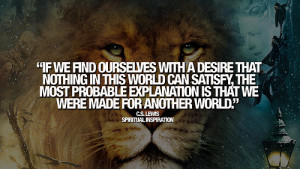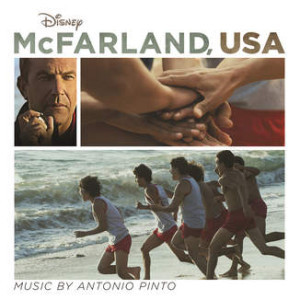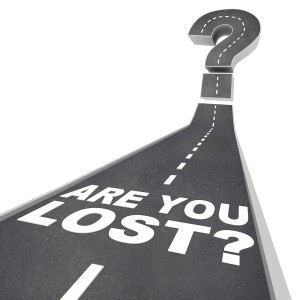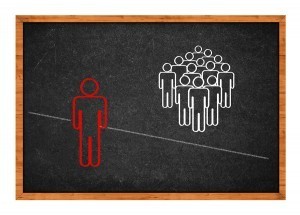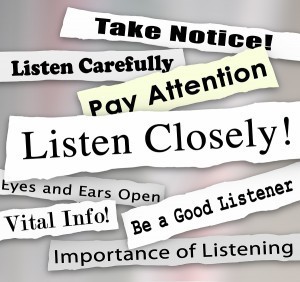Lin Wilder's Blog, page 58
April 11, 2015
The Corporate Nature of Prayer
Of late, I’ve been thinking about the corporate nature of prayer. It’s a formal phrase and is misleading because corporate implies big business in these days of mega-corporations; despite the shortcomings, the phrase is fitting. In this context, I speak about the origin of the word, corpartus or ‘to form into a body’ and am using that metaphor rather than that of commerce.
Instead of saying the entire Divine Office this morning, I did not get past today’s reading from The Rule of Benedict to move on to the Office. Instead, I spent more than a hour pondering, praying and reflecting on the practical wisdom of Benedict as he cautions against the zeal of recruitment, (my words, not Benedict’s.) When each of us has been immersed in the cultural conviction that reality is all about the numbers, what we can measure and the gripping illusion that growth is aligned with money, sales and fame, his warning hits home.
In chapter fifty-eight of the seventy-three chapter rule, the fifth century ‘father of monasticism’ counsels his monks about newcomers, the new recruits. Written about two-thousand years ago, the concepts are eerily suitable to the twenty-first century even though the words feel cumbersome and awkward, perhaps even alien to this ‘post Christian’ era.
His list of caveats are written in threes:
The interest of the newcomer must be tested over the year of discernment for stability, obedience and endurance in trials. Over the course of the year, the novice is tested for zeal, obedience and opprobria or zeal for humiliations. And the novice is to read the rule, meditate and ponder on it three times over the course of the year.More than ten years ago, during that year of discernment, I was both attracted and repelled by those terrifying words: Stability, obedience and humiliations. The attraction won out.
I understand zeal and am sure you do as well. Most of us don’t reach our twenties without an up close and personal acquaintance with the pattern of passing enthusiasms that frame our youth, perhaps far into adulthood. Whether the zeal was for a person, a career or an object, normally over the course of time, that passion extinguishes, perhaps dies.
The zeal Benedict is talking about here is the zeal for Christ. The zeal that does not get extinguished over time; rather it matures, becomes quieter but no less fierce.
The word stability did and still stands as paradox. Particularly during those times when I want to run, escape, because my life is no longer fun, the list of boring routines seem to loom endlessly in their tedium.
Humiliation: Therein lies the rub. Can any human profess to have a zeal for humiliation? St. Paul writes that he did but also declares that he is no longer himself but is Christ.
Following the year long process, the novice is accepted into the community. She along with all the others profess this prayer:
Receive me Lord, as you have promised,
And I shall live;
Do not disappoint me in my hope,
Three times the community repeats this phrase in monasteries all over the world. ‘Receive me’ with all of my flaws, imperfections, failures, weaknesses, incapacities, infirmities and ignorance.
“Receive me’ into what?
‘Receive me.’
What awful confidence in the command: ‘Do not disappoint me in my hope.’
I am reminded of a prayer I wrote long ago in the form of a poem.
BELONGING
Is there a place called home Where memories and tradition await Patiently hidden in places made deep By relentless pursuit of useless truths. Do we come trailing clouds of glory Only to don the actors pose And spend too many years and tears Reclaiming wisdom lost so long ago Saved finally by the knowledge That human truth is shadow and illusion Yet uplifted by one hope and prayer That our path toward peace and Understanding lies patiently waiting For our gaze to turn back to the Place where we began.The post The Corporate Nature of Prayer appeared first on Life In The High Desert.









April 7, 2015
McFarland USA: An Allegory for Our Lives
It’s been a week since I saw McFarland, USA but still within the first five minutes of talking with friends, I find myself exhorting him or her to see this movie. The film is an allegory for our lives, here is why:
The story deftly insinuates the willing viewer into the life of a football coach played by Kevin Costner whose career is circling around the drain. Either because of impatience, high standards, inability to control himself, or more likely, a combination of all three, he and his family end up in the tiny town of McFarland, USA, located on the central coast of California in the San Joaquin valley, where over ninety percent of the population is Hispanic. We’re given a pithy prelude when the exhausted family of four arrives in McFarland and the younger of the two daughters asks, as she looks around at the obvious poverty, the ramshackle housing, and all Spanish signs to ask, “Dad, are we in Mexico?” Our despairing protagonist becomes aware, in rapid succession, that he has moved his family to an impossible place, subjected his young blonde daughters and wife to all the dangers of Hispanic gang-bangers and lost his football career to boot. Until he begins to observe, to see the lives that these Hispanic kids live: The rare, here-to-fore hidden gifts and skills they possess.The allegory is simple and beautiful. Rather than using sentimentalized dialogue, the screen writer and Director use the magic of film, truly fine film editing to create a story that turns our prejudices upside down, forces us to confront our willingness to see only what we expect to see thereby missing the ordinary and every-day miracles right in front of us.
Sure, it is a Disney film. And that’s what we expect in a Disney film, isn’t it? Happy endings, the ostensible witch- turned- princess. But at the end of this movie, rolls out the remarkable stories of these real boys, the seven original runners, the successive wins of McFarland High School; we see, for a minute or two, anyway, that there are ordinary people, living lives of quiet desperation, suddenly ignited by the force of a dream, who become heroes, authentic champions in this race called life.
The post McFarland USA: An Allegory for Our Lives appeared first on Life In The High Desert.








 CommentsHi Judy, thanks! Good to hear from you!! by adminLoved the film and agree with you comments!! by Judy
CommentsHi Judy, thanks! Good to hear from you!! by adminLoved the film and agree with you comments!! by Judy
April 2, 2015
Joy and Sorrow: Essential Paradox
Long before I came back to the church, during those years in which I considered myself an atheist, I discovered the writings of Kahil Gibran (only after I joined the Catholic Church did I learn that Gibran had been Catholic) ; there was one meditation of Gibran’s in particular that I loved: On Joy and Sorrow.
Your joy is your sorrow unmasked.
And the selfsame well from which your laughter rises was
oftentimes filled with tears.
And how else can it be?
The deeper that sorrow carves into your being, the more joy you can contain.
The truth of Gibran’s words seemed to pierce my soul and I memorized these and a few other lines to use as a mantra for those many times in which nothing in my life made sense. Starting today, I think of them again, for a different reason.
Thursday evening begins the three days the Church calls the Triduum, or the Three Days. This Lent, and this week particularly, I keep thinking about three ideas which seem jam-packed with paradox, which can fairly accurately be called oxymoronic.
Jesus, Jesus the man. The command by the Church that we consider these days not as re-creating the historical and tragic event but something else. The joy (gaudium) of the Three Days.Unless I live into a three digit life, I will have lived most of my life not as a Christian Catholic but as something else- the labels varied through the years. Back in my early days as a Christian Catholic, I ventured readily, even eagerly, into deep conversation with others who said they were Christian or Catholic. I learned quickly that most of us Christians are quite comfortable with Jesus as God. It’s the man who makes us itchy, despite the scratching, the crawling sensation never quite disappears.
Even more strangely to me, this Lent I have finally understood why Protestants have made such a big deal about Paul. The Paul who made my skin crawl with his exhortations to husbands about subjecting their women.
Because I realized that all of the Gospel passages I have memorized over the last several years are Paul’s, I decided I needed to know more about this man, Paul. Several weeks ago, I asked a friend, a Benedictine nun, for the name of one of the books on Paul she had studied a few years ago. Paul, Apostle of the Heart Set Free by F.F. Bruce was the name of the book that Sister Charlotte and Sister Connie Ruth, the librarian at their Benedictine monastery, sent me several weeks ago. Because of this book, my sense of Paul, the apostle has been changed, quite radically in fact.
Perhaps because Paul was free of the personal experiences the others had with Jesus, Paul writes more vibrantly perhaps even purely of this man Jesus than does any of the others; he seemed to possess an understanding of Jesus as a man who had to ‘grow into his divinity’. Several places in Hebrews Paul writes of the ‘obedience Christ learned through suffering’ and writes clearly in Philippians of a man who ’emptied himself’ to ‘become a slave’ ‘known to be of human estate.’ And it is Paul who grasps the concept of the Mystical Body of Christ- that beautiful passage in Ephesians, ‘we are strangers and sojurners no more, no we are members…”
Somehow all of this has led me to see how we can look at the agony, the viciousness of the suffering endured by this man, not with understanding but with something else. The command from the Church to ponder and pray not to re-create the horror but for some other reason, perchance joy, starts to make sense. For the explanation, I return once again to Gibran.
Some of you say ‘Joy is greater than Sorrow’ and others say
“Nay, sorrow is the greater”
But I say onto you, they are inseparable.
Together they come, and when one sits alone with you,
Remember that the other is asleep upon your bed.
The post Joy and Sorrow: Essential Paradox appeared first on Life In The High Desert.









March 29, 2015
The Real Spiritual Battle
We’re approaching Holy Week, the days of silence, reflection and accounting we’re given by the Christian liturgy each year to reply to the question: How did I do during these forty days? Will there be reason to feel jubilant on Easter a week from today? Whatever we choose to call them, we fight our spiritual battles alone; in the silence, in the reflections, in the accounting.
The real battle is forgiveness, not of others, but of ourselves. And that work is exhausting, asks everything we have and then demands more. Annually we spend millions- more accurately billions- on drugs to anesthetize ourselves to the fact that we dislike, perhaps even hate, ourselves because of what we did or what we did not do. Of the reality of what we cannot forget or forgive.
Or worse, we lie.
We pretend that the action, decision, loss or betrayal did not really affect us, was not truly wrong, deny that the injury inflicted callously on another was even an injury, justifying, pretending and revising history.
This man Jesus did exist historically: The events which take place during the Palm Sunday worship services and Masses all over the world today did happen; it is their meaning that is disputed among so many.
Regardless of the presence or absence of faith, we cannot fail to be touched by this man who was killed because of envy and ignorance; ultimately because a mob preferred to free a known murderer than this man who asks of his executioners,
“I have shown you many good works from my Father; for which of these good deeds are you trying to kill me?”
This Lent, however, I am struck by the relentlessness of the greatest battle; that of speaking, owning and forgiving our mistakes, failures and inabilities because I think of this man sent to bring a new covenant to the people chosen by His Father, to whom He had appeared in a cloud and to whom he had sent manna from Heaven.
For three years, he speaks in the synagogues, in the public and private places, addressing the Israelites, specifically, the leaders of the Isrealites, the learned Pharisees, Scribes and Sadducees. Month by month, year by year, until finally the wisest leaders of this most beloved people of God decide to kill him.
But he does not blame himself.
He does not seem to waste his limited time on self-recriminations; ‘if only I had said this and not that’, ‘if only I had refrained from interfering with Lazarus’ but rather he explains that only those who come from his father understand him; those who do not cannot understand me.
Where I am going you cannot come.
You belong to what is below, I belong to what is above.
Surrounded by twelve men, the evening before they would come for him, he and they share a last meal; the meal where he institutes the Eucharist. Twelve men whom he had lived with, slept with, laughed and drank with; each filled with weakness, cowardice and ignorance. His three favorites cannot stay awake even for one hour despite his desperate plea for company.
But he does not blame himself.
We are permitted to see the sadness, the fear and the horror he feels at what will come, soon. During the agonizing moments in Golgotha where he begs for release from the abhorrence of what he faces, we hear no blame, no sense of dismay at his own weakness. We hear only his humility- his truth.
One could then, with reason, enunciate this principle: The first goal of spiritual combat…is not always obtain a victory (over our temptations, our weaknesses etc.) rather it is to learn to maintain peace of heart under all circumstances, even in the case of defeat…only in this way can we pursue the other goal…the elimination of our failures, our faults…our sins….it is uniquely the grace of God that will obtain the victory…the more we maintain peace and confident abandonment in the hands of our Father…
The post The Real Spiritual Battle appeared first on Life In The High Desert.









March 16, 2015
Deadlines and Mind Games
Strange word, deadline: Sounds somber even grim.
Of late, I’ve been thinking about goals, targets and yes, deadlines because of the push to complete my latest book. Mostly because those who know I write are asking, ‘When will you finish the next book?’
Simple question, right?
Not loaded with animosity, simply curiosity.
Yet each time when I’ve replied verbally or in writing, I’ve felt that visceral tug or rather twist when the reply, ‘six to eight weeks’ is uttered or written.
Having lived most of my life with deadlines, invoked by others or by me, the effect has, not infrequently, been over the top:
Obsessive attention to the thing Anxiety Inability to stop thinking about it Emotional reactions to all of the above ranging from irritability to extremely antisocial behaviorWhen I started writing fiction, close to ten years ago now, my husband asked a favor. We’d been talking about how long it would take me to write the book, I was getting ready to make the date by which the first draft would be done- the deadline. More accurately, I was talking, he was listening.
But then he asked, ‘This time, please try to make the process enjoyable. Instead of doing what you’ve always done and kill yourself to get it done, make this a journey of discovery. There’s a reason you’ve made the decision, the commitment to write this book; make the learning, the exploration fun, exciting- find out why you’ve decided to do this and let it change you…”
And then, noting my mute rather stunned reaction, “Do you think you can do this?”
Sadly, this notion had not occurred to me despite the many conversations he and I had had during the years we’d known one another about the illusion of credentials, titles, achievements, of the crushing realization when a goal is reached of what now?
What do I go for next?
With this sequel to the first novel ,published last July, I’ve learned better habits and have ‘enjoyed the journey’ so much so that I realized that my six to eight week target reply had been a rote reply made over the last several months, becoming meaningless.
So on a lark while my writer friend Rebecca and I were able to enjoy a few hours together, I added a caveat to the plans for our next ”date.’
We made a bet. If I did not have 75,000 words written by our March 25th date to see the new movie, Insurgent, then I’d buy the tickets and the meal following the movie; my husband walked in just as we made the bet asking what Rebecca’s stake was, shaking his head at my “I don’t care, I only care about my part of the bet.”
The remarkable outcome of this silly bet has bowled me over: I’ll meet that goal, easily.
In the days and weeks since I recovered from the next day horrors of just what have I done to myself here again, the writing has flowed and I look forward to what will happen in this dynamic ever changing story. The daily minimum word count has become almost easy and frequently fun.
Lesson learned: The power of fun and of playing can be surprisingly effective in maximizing our productivity. Most especially for those of us who count themselves as recovering deadline addicts.
Mind Games, may they live long and prosper.
The post Deadlines and Mind Games appeared first on Life In The High Desert.








 CommentsHonestly no- I am so happy that this provided THE most amazing ... by adminI wonder if it's difficult to enjoy the “first” journey ... by Rebecca
CommentsHonestly no- I am so happy that this provided THE most amazing ... by adminI wonder if it's difficult to enjoy the “first” journey ... by Rebecca
February 23, 2015
Food Nazi or Simply Concerned Citizen?
Friends and family who know me well have referred to me as a food Nazi either sotto voce, tongue-in-cheek, or jokingly. And the sobriquet (love that word and only rarely get to use it) is fitting for those who don’t care about GMO, dwarf grain, epigenetics or much of the information on nutrition I find fascinating; it’s ok, I get that.
Only recently, have I become aware of the magnitude of my ignorance about the food I eat-specifically meat. For a while, I’ve preferred grass fed beef simply because it makes sense but I was unaware of the magnitude of the risk we take when we consume the less expensive meats we purchase in the grocery store.
One of the many things I have loved about living in our high desert rural valley has been watching the new life appear among the many herds of cattle that dot the landscape in our valley, along the main freeway to Reno and along the back mountain roads to California. Bucolic and beautiful scenes of healthy cattle grazing on green grass or more often in our winters, dry sage brush and brown grasses that these animals manage to extract sufficient nutrition for themselves and the babies they will have in the early spring. Still however, they have plenty of room to roam along with the tiny calves when they begin to appear in mid-February.
Like you, I have heard of CAFO facilities but did not bother to investigate beyond the meaning of the acronym: Confined Animal Feeding Operations. No need for a degree in animal husbandry needed to feel an intuitive and highly negative reaction to the concept. The term connotes the opposite of what I have been describing. But only when I have seen these places, almost always on back roads, away from where the public can see them to I understand why our animals are fed a constant antibiotics in their food. And have been for many years.
[image error]
These confined feeding areas are huge. Mile after mile of cows crammed shoulder to shoulder with hardly any room to mover never mind roam. The stress to these animals must be enormous as is of course the risk of disease. Rather than grass, the cattle are living in their own excrement and that of others. The odor is, of course, foul and repulsive but the reason I write is neither the aesthetics or the barbaric and savage treatment of animals, it is a far more serious matter even than those: your health, perhaps your life or that of someone you love.
Overstatement?
Hysteria?
Consider these facts please:
A recent Scientific American study predicts that antibiotic resistance will kill 300 million people by 2050.
Agriculture accounts for 80% of the antibiotic usage in this country.
US Centers for Disease Control and Prevention (CDC) data show that two million American adults and children become infected with antibiotic-resistant bacteria each year.
Methicillin resistant Staphylococcus aureus (MRSA) kills more Americans each year than the combined total of emphysema, HIV/AIDS, Parkinson’s disease, and homicide.
Between 1973 and 2011, there were 55 antibiotic-resistant foodborne outbreaks in the US, and more than half of them involved pathogens resistant to five or more antibiotics.
Last October, the Washington Post reported ‘tens of thousands taking to the streets in over 22 European countries in protest over a ‘free trade’ deal between the US and the EU.
Why? Because Europeans refuse to eat antibiotic , hormone treated beef, chicken washed in chlorine and glysophate soaked engineering materials.
Do I have your attention now?
Great, please take 10 minutes and watch Allen Lewis in this 5 minute TED talk.
Decide now to buy only antibiotic free beef and chicken- grass fed beef.
And start talking about this, to everyone you know.
The post Food Nazi or Simply Concerned Citizen? appeared first on Life In The High Desert.
February 19, 2015
Travel and Disorientation
After four months on the central coast of California, we are back home here in the high desert. I am acutely aware of the disorientation that travel causes for a host of reasons; fatigue, loss of familiar places and even, a process of re-acquaintance with our new surroundings, amplified by major topographical changes: The Pacific coast to the high desert at about 5000 feet.
During the months we’d been gone, we drove back to check that all was well but stayed only for a few days; sort of feeling like visitors here, strangely more at home in our cozy, tiny space in the RV.
While it feels great being back in our home, I feel disoriented by the spaciousness of our home compared to the 400 square feet we lived in for 120 days. Also that I’ve missed out on time here; mostly Christmas. Back around December 22nd, we decided to have a party at home with our Nevada friends and their kids. Probably the best party we’ve had in years, I raced like crazy to put up Christmas decorations the morning of December 22nd, the day scheduled for the party, because we were expecting several children at the party. We had purchased gifts from Santa for them; giving them out made the party for us and everyone else but then we left only a few days later to return to the California coast leaving all those Christmas decorations sitting here in our empty house.
Since we just returned home yesterday, this morning was the first chance I had to put away the Christmas decorations and to switch out the wreaths on the front door from Christmas to Lent. Doing so made me think about Christ, of course, and for the first time since I’ve been a Christian, I counted up the days from the end of Christmas-Epiphany, this year on January 8th, to Ash Wednesday: 41 days.
Forty-one days to cover the birth of Christ, the smidgen we know about the lives of the child, his mother and father in Bethlehem, Egypt and Nazareth, his public ministry then whap; we’re in the forty days of Lent. He lived for 33 years and we cover his entire life in 89 days or so it feels to me as I ponder the timing of the liturgical calendar.
Disorienting.
I got a message from Janyce right after we got home last night, Janyce and her husband Dave were neighbors down in the RV park where we stayed and became good friends. Like us, they are dog lovers. Janyce called because said the people who now inhabit the site we did have a red Dobie. Janyce and Dave have heard about my affinity…no, my love for Dobies, especially red ones, for close to four months and was impressed enough with the irony that she sent me a photo of this Dobie girl. Here she is:
The post Travel and Disorientation appeared first on Life In The High Desert.
February 16, 2015
Outcasts of Today
‘He shall dwell apart, making his abode outside of the camp.’ They would be outcasts, prohibited from the security and protection of the community.
The command is from the reading in the Christian liturgy for the last Sunday before Lent. The book of Leviticus is proscribing treatment for the Israeli man or woman afflicted with the dreaded disease of Leprosy, a scourge of humanity well into the last century. Only recently- within the last seventy years- have we understood the anti-bacterial protection offered by hand washing and developed medication for those afflicted with Leprosy, thereby making the exile of the infected unnecessary. In Biblical days, the infected individual was required to constantly cry, ‘Unclean’ in order to announce the danger of touching him or her to others; a practice we now decry as barbaric and cruel.
No longer do we need to exile the outsider due to disease or illness with our 21st century knowledge and medical systems, right?
Only three months ago, we witnessed the fallacy of that statement. One man returning home to Dallas who lied about his travel to Liberia was the catalyst for a short term panic. Had the number of Ebola cases continued to increase one could see easily the panic escalating to hysteria followed by easily imaginable consequences like isolation and exile. But that’s Ebola…justifiable due to terrifying risk of contagion and then of death, right?
It was Sunday morning and I was writing, working to complete my second novel when I heard my husband approach from the several mile walk he takes along the beautiful Oceano coast where we’ve been staying through the winter.
“Is it ok to bring in my friend Umberto?” John was talking about a homeless man he has met, a schizophrenic veteran who lives under the bridge.
I stared at him, mouth agape, realizing he was going to bring the man in here…to our RV, the RV I work so hard to keep clean. I looked at the stack of prayer books for the Divine Office I had been praying earlier, before dawn and nodded, wordlessly.
“Beautiful roses, a belated Happy Valentine’s day to you,” Umberto said as he sat on the leather chair where I just had been sitting, writing on my laptop.
Hastily grabbing the laptop just as he was about to sit on it, I smiled at Umberto, shook his hand, and thanked him for the good wishes and asked if he’d like a cup of coffee; working hard to ignore the pungent odor surrounding him and to stop wondering when the hand I had just shaken had last been washed.
“I prefer to drink rather than eat,” he replied to our offer of something to eat but did accept the deviled eggs I had made the night before and graciously accepting the beer John offered him. Umberto agreed that yes, a glass would be nice for the beer and a fork too would be very nice to eat his egg.
My husband, a retired psychologist, worked for over twenty years with former combat veterans. His respect and affection for these men is profound; at times like yesterday morning, he shows me what real hospitality looks like.
The post Outcasts of Today appeared first on Life In The High Desert.
February 8, 2015
Why Should I Listen to You Again?
“Why should I listen to you?” was a rhetorical question asked and answered a few decades ago when I decided to stop watching the news.
Initially, my reason was a simple one. I lived alone with my first Doberman during the time of a series of home invasions in my own and surrounding neighborhoods. The local Houston news graphically called them the ‘Kick-In Burglars”; fitting, since once these crooks kicked in the front door, they could proceed on to do whatever they wished.
What value, I reasoned, was daily listening to details about these frightening break-ins? I had my dog, my pepper spray next to my bed and my 38 on the floor under it- I had done all I could think of to protect myself. Listening to the endless nightly reports simply scared me and to no avail. Over the years, my reasons for opting out of the national, perhaps global, obsession with the nightly news grew at an exponential rate.
Here’s why.
Most likely, I did not frame my rhetorical question exactly like ‘Tell me why I should listen to you again?” but it was close. Intuitively, I resisted the increasingly attractive faces with their disturbingly emotionally appropriate expressions to match whatever catastrophe they were reporting.
I thought frequently about Marshall McLuhan’s prophetic statement about the impact of television and its images upon culture and society: ‘The medium is the message.’ How did it happen that the arguably best educated citizenry in history relied on strangers with great haircuts to form their opinions about their world?
Our ability to question, to demand evidence, even proof to be convinced seemed inversely related to the power of a smile, the presence of absence of a smirk upon our judgement.
During several times in which I held a position of authority, I was exposed to several television hosts and agreed to interviews in hopes of using the exposure for public education only to learn that sound bytes are just that.
Over time, I learned to keep my mouth shut during conversations with colleagues and friends rather than confessing that I did not watch the news: Explaining why was futile.
Incrementally, within the last ten years, there have been increasing numbers of articles, written by non-traditional types describing the effects of watching fear- filled graphic messages right before bed on the viewer: physical consequences like insomnia, high blood pressure , anxiety are among the more innocuous. The articles were distressingly still counter cultural.
Therefore, I was surprised and pleased, to read Adriana Huffington’s post on LinkedIn the other day. Her message?
The news media is far too removed from the reality of main stream life. Despite the fact that we are living in what is the ‘safest period’ of human history, the print and visual news media are filled with violence, murder and mayhem, locally and around the globe. Liberally quoting from Steven Pinker’s latest book, The Better Angels of Our Nature: Why Violence Has Declined, Huffington observes that big city rates of murder, rape and other felonies are significantly lower than in twenty years yet our print and media news men and women defend their nightly forecasts of fear and gloom.
Imagine a diet of news no longer grounded in fear?
The post Why Should I Listen to You Again? appeared first on Life In The High Desert.
February 5, 2015
Discipline and Habit Equal Happiness
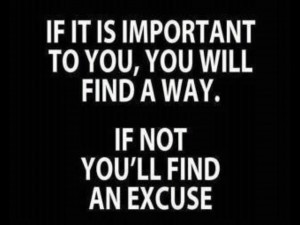 During an interview about the essentials of health and happiness, the reporter was surprised when I added work to my list. We were nearing the end of the time allotted for the interview, therefore I did not have time to elaborate about the many reasons I chose to add work to my list of healthy habits like exercise, ridding the diet of sugar, carbs, wheat and increasing consumption of good fats and getting good sleep. Since that interview, I’ve been thinking about work and why I think it essential to our well-being.
During an interview about the essentials of health and happiness, the reporter was surprised when I added work to my list. We were nearing the end of the time allotted for the interview, therefore I did not have time to elaborate about the many reasons I chose to add work to my list of healthy habits like exercise, ridding the diet of sugar, carbs, wheat and increasing consumption of good fats and getting good sleep. Since that interview, I’ve been thinking about work and why I think it essential to our well-being.
Despite the scores of homeopathic remedies I’d been using to fight off the various varieties of viruses floating around me during the last month, last week my system succumbed and I was too ill to do anything other than sleep for several days.
While at the gym yesterday, I was excited to feel well once again, to have the strength to sweat and this time through physical exertion rather than fever, I looked around at the mostly smiling, happy faces of my fellow work-out partners and thought once again of the relationship between discipline, habit, work and happiness. In a way, I think they are all the same thing.
Here’s why.
With ease, the memories of my first days of working out return.
As a kid, I was not athletic; I am not what anyone would call graceful. When I began running, I was huffing and puffing after the first five minutes and since I wasn’t used to sweating, it felt distinctly unpleasant and I felt ridiculous.
Similarly, when I decided that I needed a closer relationship with God and began the search in earnest, I had no idea of what i was doing, only that there was a hunger.
And later, when I decided to write the novel I’d been threatening to write for my entire life, the process was exactly the same: enduring that phase of flailing around, of feeling stupid…all of that and more.
It starts with discipline.
Always.
Only after slogging through all the hours, weeks, months, even years of doing the best we know how to do, does it begin to get easy. Because now, it’s habit. Whether in exercise, healthy behaviors, prayer and faith, the discipline must precede the development of the habit.
It’s work. Sometimes it’s hard work but once it becomes a habit, what a high.
That is why I added work to my requisite list of necessary behaviors for health and happiness.
The post Discipline and Habit Equal Happiness appeared first on Life In The High Desert.

